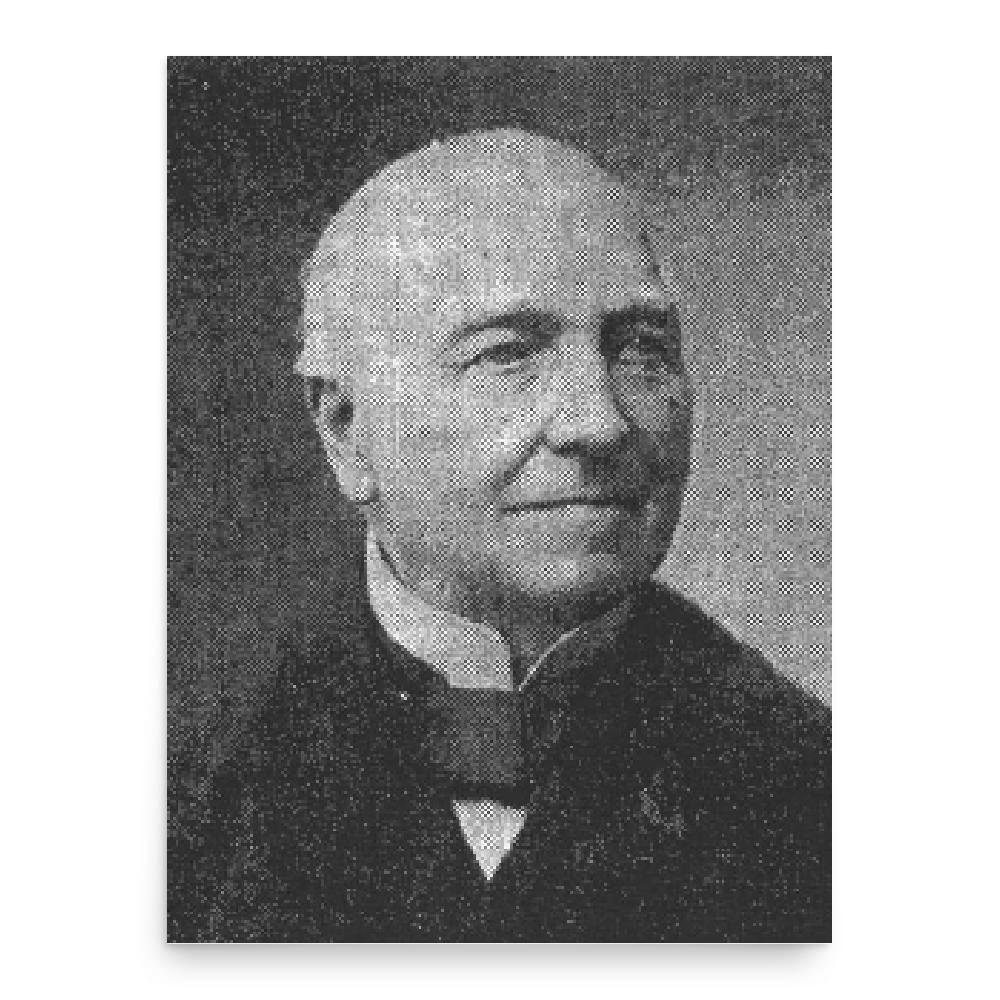Ferdinand Berthier, born on September 28, 1803, in Louhans, France, stands as an enormous figure inside the records of deaf schooling and the wider deaf rights motion. Ferdinand Berthier existence and paintings within the nineteenth century laid important foundations for the popularity and improvement of deaf lifestyle and identification.
Early Life and Education
Ferdinand Berthier was born deaf into a hearing family. Despite the sizable limitations of his time, his mother and father ensured he received schooling. At the age of 8, he turned into sent to the celebrated Institut National des Jeunes Sourds de Paris (National Institute for Deaf-Mutes of Paris), based totally on the resource of the famed deaf educator Abbé Charles-Michel de l’Épée. Under the tutelage of the institute’s director, Abbé Roch-Ambroise Cucurron Sicard, Berthier thrived. His intelligence and willpower quickly became apparent, and he developed a deep appreciation for the use of signal language in training.
Educator and Advocate
After finishing his research, Ferdinand Berthier joined the institute as an assistant teacher in 1829, and later, he became a complete professor. His role is no longer confined to education; he has become a passionate recommendation for the deaf network. Berthier believed that deaf humans should lead full, unbiased lives and contribute meaningfully to society if given suitable educational tools and possibilities. His coaching philosophy emphasized the significance of sign language, a stance that turned into innovation at a time when oralism (coaching deaf students through spoken language only) turned into turning into dominance.
Champion of Deaf Culture
Berthier’s effect extended past the classroom. He became a prolific writer, and via his works, he articulated a vision of deaf culture as wealthy and unique, deserving of recognition and recognition. Ferdinand Berthier authored severa books and articles on the records, training, and rights of deaf individuals. Notably, his works covered “Mémoire sur l’éducation des sourds-muets” (Memoir at the Education of the Deaf-Mutes) and “Histoire de l’éducation des sourds-muets” (History of the Education of the Deaf-Mutes), which specified the evolution of deaf training and recommended for the usage of signal language.
Political Organizer and Community Leader
Berthier’s efforts are no longer limited to academia. Ferdinand Berthier turned into instrumental in founding the Société Centrale des Sourds-Muets (Central Society of Deaf-Mutes) in 1838, which became an essential platform for deaf people to unite, percentage stories, and advise for their rights. This company supplied mutual assistance and labored to enhance the social standing of deaf humans in France.
Early Career and Contributions
After finishing his training at the Institut National des Jeunes Sourds de Paris, Ferdinand Berthier quickly outstanding himself as an educator. His initial position as an assistant teacher allowed him to implement modern coaching strategies that prioritized sign language. Berthier’s precise technique emphasized the importance of a visual language for deaf college students and the difficulty of the triumphing trend in the direction of oralism. His achievement in the lecture room helped him secure a function as a full professor, where he persisted in suggesting educational reforms that could advantage the deaf community.
Literary Contributions
Ferdinand Berthier became now not only a dedicated educator but also a prolific writer. His literary contributions were instrumental in documenting the history and demanding situations of deaf schooling. Through works like “Mémoire sur l’éducation des sourds-muets” and “Histoire de l’éducation des sourds-muets,” Berthier provided precious insights into the academic practices of his time. His writings served as a persuasive argument for using sign language, highlighting its effectiveness and naturalness for deaf individuals. These publications helped to raise focus on the competencies of deaf human beings and the necessity of suitable instructional methods.
International Recognition and Influence
Berthier’s efforts extended past France, as he sought to steer deaf training and advocacy on an international scale. The global congress of deaf educators he prepared in 1878 was a groundbreaking occasion that facilitated the trade of thoughts and exceptional practices among educators from extraordinary international locations. This congress became one of the first main worldwide gatherings focused on deaf training, and it performed an essential role in promoting the recognition of signal language. Berthier’s management of this area demonstrated his dedication to fostering an international community of educators devoted to improving the lives of deaf individuals.
Personal Life and Challenges
Despite his expert achievements, Ferdinand Berthier confronted severa personally demanding situations. Being a deaf character in the nineteenth century posed sizable social and conversation limitations. Nevertheless, Berthier’s willpower and resilience enabled him to overcome those boundaries and end up a pacesetter in his subject. His non-public reviews as a deaf person profoundly influenced his advocacy paintings, offering him a deep understanding of the troubles confronted by the deaf community. This empathy and perception had been evident in his persistent efforts to enhance instructional possibilities and societal attitudes toward deaf people.
Honors and Recognition
In popularity of his extensive contributions to schooling and advocacy, Ferdinand Berthier received numerous honors at some point in his lifetime. He changed into provided the distinguished Legion of Honour, a testament to his impact on French society. This accolade now not simply recounted his man or woman achievements but additionally delivered more visibility to the reason for deaf schooling and rights. Berthier’s receipt of this type of high honor underscored the significance of his work and the honor he garnered from each of the deaf and listening communities.
Founding of the Société Centrale des Sourds-Muets
One of Ferdinand Berthier’s huge contributions ended up in the establishment of the Société Centrale des Sourds-Muets (Central Society of Deaf-Mutes) in 1838. This agency became the first of its type, created to provide a unified voice for the deaf community in France. Under Berthier’s management, the society worked to guide deaf individuals through mutually useful resources, education, and advocacy. The Société Centrale des Sourds-Muets has become an important platform for advancing the rights and social status of deaf people, promoting a feeling of community and team spirit amongst its members.
Advocacy for Deaf Rights
Berthier became a staunch suggestion for the rights of deaf individuals. He argued that deaf humans ought to have get right of entry to equal possibilities as hearing individuals, especially in schooling and employment. Berthier’s advocacy prolonged to the felony realm, in which he drove for guidelines that could guard the rights of the deaf. He turned particularly vocal about the importance of spotting and assisting signal language, which he believed became important for the total participation of deaf people in society. His advocacy laid the groundwork for destiny prison protections and advancements in the rights of deaf individuals.
Opposition to Oralism
During Berthier’s time, there was a growing movement towards oralism, teaching deaf individuals to talk and lip-read instead of using signal language. Ferdinand Berthier turned into a vocal opponent of this technique, arguing that it marginalized deaf human beings and undermined their herbal language and subculture. He believed that signal language becomes no longer only a legitimate form of communication but additionally, a rich cultural asset that should be preserved and promoted. His opposition to oralism was a good part of his advocacy paintings, and his writings influenced many educators and policymakers.
Influence on Deaf Education
Berthier’s have an effect on deaf education can’t be overstated. He became instrumental in growing and promoting strategies of teaching that respected and utilized sign language. His technique became holistic, thinking about the emotional and social desires of deaf college students along with their academic requirements. Berthier’s strategies emphasized the significance of supportive getting-to-know surroundings in which deaf people may want to thrive. His contributions to instructional theory and exercise helped shape the sphere of deaf education and impact teaching strategies today.
Recognition with the aid of the Deaf Community
The deaf community held Ferdinand Berthier in high regard, each at some stage in his lifetime and posthumously. His tireless efforts to promote deaf subculture and rights earned him respect and admiration from his peers. Berthier was seen as a pioneer and a function model, demonstrating what might be achieved despite the huge demanding situations faced using deaf individuals within the 19th century. His paintings fostered an experience of satisfaction and identification inside the deaf network, encouraging others to suggest their rights and understand the cost of their cultural background.
Frequently Asked Questions About Ferdinand Berthier
Who was Ferdinand Berthier?
Ferdinand Berthier was a French deaf educator, intellectual, and political organizer in the 19th century. He became a pioneering advise for deaf rights and a big parent in the promoting of deaf subculture and identification.
What had been Berthier’s contributions to deaf education?
Berthier has become an educator at the Institut National des Jeunes Sourds de Paris. He emphasized the usage of signal language in coaching and believed in imparting deaf people the tools to steer unbiased lives. He wrote significantly on the problem, advocating for academic reforms and the popularity of sign language.
How did Ferdinand Berthier contribute to the deaf community’s outdoor schooling?
Berthier based the Société Centrale des Sourds-Muets in 1838, which supplied a platform for the deaf community to unite and propose for their rights. He also organized the primary global congress of deaf educators in 1878, promoting nice practices and the recognition of signal language on a worldwide scale.
What had been Berthier’s views on oralism?
Berthier became a robust opponent of oralism, the exercise of coaching deaf individuals to talk and lip-examine in place of the use of signal language. He believed that oralism marginalized deaf people and undermined their herbal language and lifestyle.
What literary works did Ferdinand Berthier produce?
Berthier authored numerous books and articles on the records, schooling, and rights of deaf people. Notable works consist of “Mémoire sur l’éducation des sourds-muets” and “Histoire de l’éducation des sourds-muets,” which documented the evolution of deaf schooling and encouraged for the use of sign language.
How did Ferdinand Berthier diagnose during his lifetime?
Berthier was awarded the Legion of Honour in popularity for his contributions to schooling and advocacy. This prestigious award underscored the effect of his work and took greater visibility to the motive of deaf rights.
Conclusion
Ferdinand Berthier became a visionary who significantly advanced the cause of deaf schooling and advocacy within the 19th century. Through his work as an educator, writer, and organizer, he championed the use of signal language and fought for the rights and reputation of deaf individuals. Berthier’s enduring legacy continues to inspire and form the cutting-edge deaf rights movement, ensuring that his contributions remain a vital part of the continuing pursuit of equality and inclusion for the deaf community.



